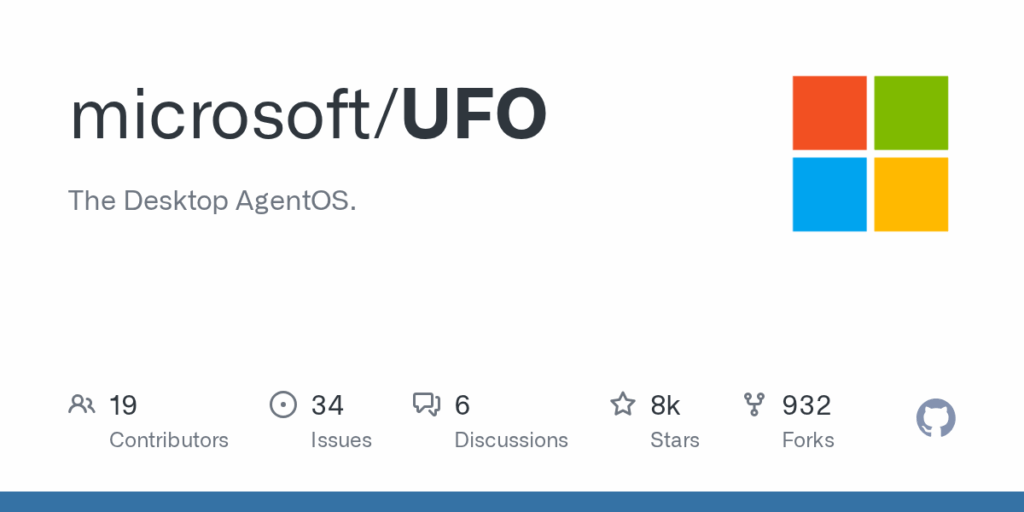UFO
Basic Information
UFO² is an open source Desktop AgentOS and research platform that turns natural‑language goals into reliable multi‑application workflows on Windows. The repository provides a multi‑agent architecture centered on a HostAgent that parses user goals and coordinates AppAgents running per application. AppAgents execute ReAct loops with multimodal perception, hybrid control detection and a Puppeteer executor that chooses between native APIs and GUI actions. The project includes a Knowledge Substrate for retrieval‑augmented reasoning, a Speculative Executor to predict and validate batches of actions, and tooling for sandboxed execution and logging. The codebase targets researchers and developers building and evaluating desktop agents, requires Python 3.10+ on Windows 10+, and is intended for research use rather than production deployment. The README also documents installation, LLM configuration for Host and App agents, optional RAG settings and evaluation benchmarks used to measure agent performance.








